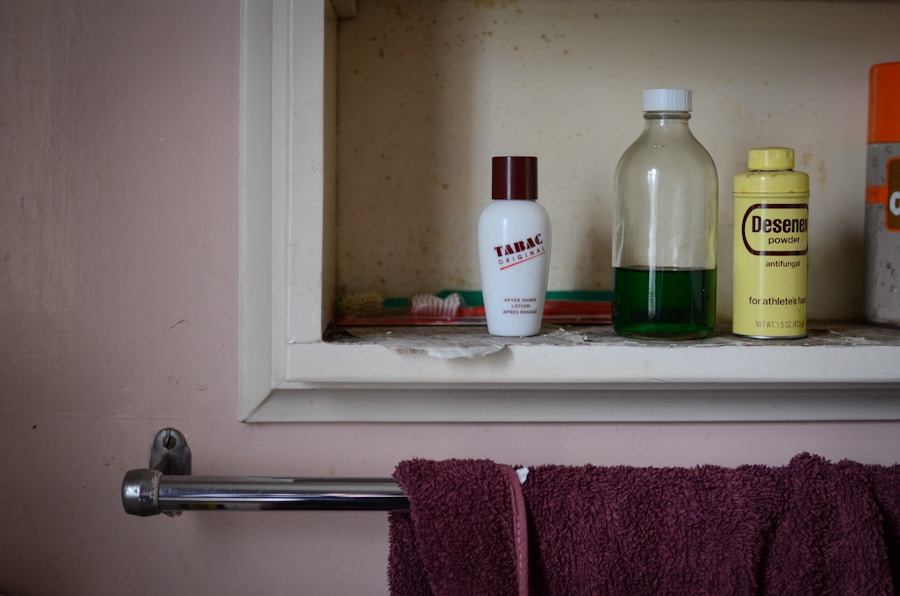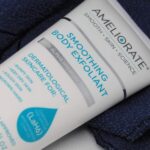After undergoing laser hair removal treatment, it is crucial to understand the importance of aftercare in order to achieve the best results and minimize any potential side effects. Aftercare plays a significant role in the success of the treatment, as it helps to ensure that the skin heals properly and that the hair removal process is effective. Proper aftercare can also help to reduce the risk of complications and promote long-term skin health.
One of the key reasons why aftercare is so important is that laser hair removal treatment can cause temporary changes to the skin, such as redness, swelling, and sensitivity. By following a proper aftercare routine, you can help to minimize these side effects and promote faster healing. Additionally, aftercare can help to prevent infection and scarring, which can occur if the skin is not properly cared for after treatment. Overall, understanding the importance of aftercare is essential for anyone considering laser hair removal, as it can significantly impact the overall success and safety of the treatment.
The Do’s and Don’ts of Post-Laser Hair Removal
After undergoing laser hair removal treatment, there are certain do’s and don’ts that should be followed to ensure the best results and minimize any potential side effects. One of the most important do’s is to keep the treated area clean and dry in the days following the treatment. This can help to prevent infection and promote faster healing. It is also important to avoid sun exposure and to use sunscreen on the treated area to protect the skin from UV damage.
On the other hand, there are several don’ts that should be followed after laser hair removal treatment. One of the most important don’ts is to avoid picking or scratching the treated area, as this can lead to infection and scarring. It is also important to avoid using harsh skincare products or exfoliating the skin for at least a week after treatment, as this can irritate the skin and interfere with the healing process. By following these do’s and don’ts, you can help to ensure that your laser hair removal treatment is as effective and safe as possible.
Managing Discomfort and Redness
After undergoing laser hair removal treatment, it is common to experience some discomfort and redness in the treated area. However, there are several ways to manage these side effects and promote faster healing. One of the most effective ways to manage discomfort and redness is to apply a cold compress to the treated area, which can help to reduce swelling and soothe the skin. It is also important to avoid hot showers or baths in the days following treatment, as this can exacerbate redness and discomfort.
In addition to using a cold compress, there are several skincare products that can help to manage discomfort and redness after laser hair removal treatment. For example, using a gentle moisturizer can help to soothe the skin and reduce dryness, while using aloe vera gel can help to calm redness and irritation. It is also important to avoid using any skincare products that contain alcohol or fragrances, as these can further irritate the skin. By following these tips, you can effectively manage discomfort and redness after laser hair removal treatment.
Protecting Your Skin from Sun Exposure
After undergoing laser hair removal treatment, it is crucial to protect your skin from sun exposure in order to prevent damage and promote faster healing. Sun exposure can not only increase the risk of hyperpigmentation and sunburn in the treated area, but it can also interfere with the effectiveness of the treatment. Therefore, it is important to avoid sun exposure for at least two weeks following laser hair removal treatment, and to use sunscreen with a high SPF on the treated area when going outside.
In addition to using sunscreen, it is also important to wear protective clothing, such as hats and long sleeves, when going outside in order to further protect the skin from UV damage. It is also important to avoid using tanning beds or sunlamps in the weeks following treatment, as these can also increase the risk of sun damage. By taking these precautions, you can help to protect your skin from sun exposure and promote faster healing after laser hair removal treatment.
Maintaining Hydration and Moisture
After undergoing laser hair removal treatment, it is important to maintain hydration and moisture in order to promote faster healing and minimize any potential side effects. Laser hair removal treatment can cause temporary dryness and sensitivity in the treated area, so it is important to use a gentle moisturizer regularly in order to keep the skin hydrated. Additionally, drinking plenty of water can help to hydrate the skin from within and promote overall skin health.
In addition to using a moisturizer and drinking plenty of water, there are several other ways to maintain hydration and moisture after laser hair removal treatment. For example, using a humidifier in your home can help to add moisture to the air and prevent dryness in the skin. It is also important to avoid using hot water when washing your face or showering, as this can strip the skin of its natural oils and lead to dryness. By maintaining hydration and moisture in these ways, you can help to promote faster healing and minimize any potential side effects after laser hair removal treatment.
Avoiding Certain Skincare Products
After undergoing laser hair removal treatment, it is important to avoid using certain skincare products that can irritate the skin or interfere with the healing process. For example, it is important to avoid using any skincare products that contain alcohol or fragrances, as these can further irritate the skin and increase the risk of side effects. It is also important to avoid using exfoliating products or harsh cleansers for at least a week after treatment, as these can interfere with the healing process.
In addition to avoiding certain skincare products, it is also important to be mindful of any medications or topical treatments that you are using after laser hair removal treatment. For example, certain acne medications or retinoids can increase the risk of irritation and should be used with caution in the treated area. It is important to consult with your dermatologist or skincare professional before using any new products after laser hair removal treatment in order to ensure that they are safe for your skin. By avoiding certain skincare products and being mindful of any medications or treatments, you can help to promote faster healing and minimize any potential side effects after laser hair removal treatment.
Long-Term Maintenance and Follow-Up Treatments
After undergoing laser hair removal treatment, it is important to consider long-term maintenance and follow-up treatments in order to achieve the best results and maintain smooth, hair-free skin. While laser hair removal treatment can significantly reduce hair growth in the treated area, it may not completely eliminate all hair follicles. Therefore, long-term maintenance treatments may be necessary in order to maintain results over time.
One option for long-term maintenance is to schedule follow-up treatments as recommended by your dermatologist or skincare professional. These follow-up treatments can help to target any remaining hair follicles and ensure that the results of your initial treatment are maintained. Additionally, it is important to continue protecting your skin from sun exposure and following a proper skincare routine in order to maintain overall skin health. By considering long-term maintenance and follow-up treatments, you can ensure that your laser hair removal results are long-lasting and effective.
In conclusion, aftercare plays a crucial role in the success of laser hair removal treatment. By understanding the importance of aftercare, following the do’s and don’ts of post-laser hair removal, managing discomfort and redness, protecting your skin from sun exposure, maintaining hydration and moisture, avoiding certain skincare products, and considering long-term maintenance and follow-up treatments, you can achieve the best results and maintain smooth, hair-free skin over time. It is important to consult with your dermatologist or skincare professional for personalized aftercare recommendations based on your individual needs and skin type. With proper aftercare, you can ensure that your laser hair removal treatment is safe, effective, and long-lasting.






